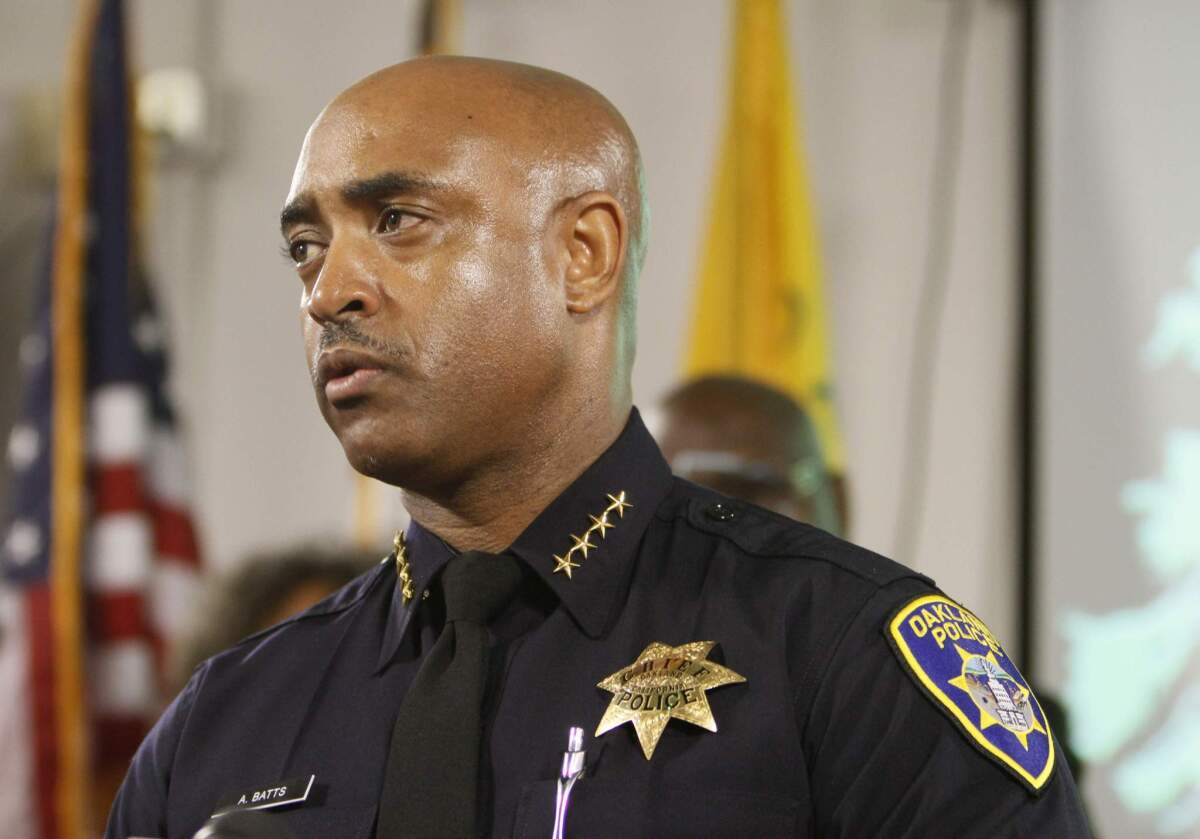Baltimore police commissioner served in California, dealt with Oakland unrest

Baltimore Police Commissioner Anthony Batts in 2010, when he was chief of police in Oakland.
Reporting from Oakland â Baltimore Police Commissioner Anthony Batts, who struggled Monday to stop rioting in the city, spent most of his law enforcement career in California, confronting unrest during a rocky two-year tenure in Oakland.
Batts presided over street upheaval twice in 2010, when a regional transit police officer was convicted of manslaughter â not murder â in the shooting death of an unarmed black man at Oaklandâs Fruitvale Station, and when he was sentenced.
He also served 27 years on the Long Beach Police Department, rising to chief in 2002.
LIVE UPDATES: Riots erupt in Baltimore
In an interview looking back on his brief Oakland career, he commended his handling of the demonstrations, saying his department had worked with liaisons to the protesters and hung back to allow them as much free expression as possible.
âWe allowed the protesters to start breaking into Foot Locker. They broke into Foot Locker and different places. But we had to do that because we didnât want to look like this was a police action, where we were responding too soon,â Batts told Oakland North, a local news website.
âThen we had a very coordinated plan. It took us time to just kind of corral them, bring them in, and take them to jail. We didnât have any complaints whatsoever, and the citizens said we did a good job.â
Batts was strong on community outreach in Oakland, and many community leaders were sorry to see him leave. But his tenure was bumpy.
He was recruited to Oakland from Long Beach by then-Mayor Ron Dellums after a national search.
At first he turned down the job, but changed his mind while attending the funeral of four Oakland officers slain by a felony suspect in March 2009.
He said he saw the âdisconnectâ between the department and the city it served and wanted to help. He said he also took the job because of âhow many young people die in the city of Oaklandâ people the age of my kids, in their 20s.â
In Long Beach, Batts was âconsidered to be a fair chief,â said Long Beach Police Officers Assn. President Steve James, and officers took note when he left of just how much he had improved community perceptions of the force.
âIt wasnât just community policing,â James said. âIt was engaging with the community, literally getting out there and making sure that they were partners.â
Batts also understood department culture, having essentially grown up in it.
In Oakland, however, he struggled to satisfy a monitor and federal judge who were threatening a department takeover because of a lack of compliance with court-ordered reforms over the framing and beating of suspects.
Crime rose. Budgets shrank. When he left two years into his three-year contract he had 150 fewer officers than the 796 when he signed on. He cited poor resources and excessive bureaucracy, but those close to him said he also chafed at micromanagement by Mayor Jean Quan, who took office in January 2011.
âI donât know if any chief could have been successful in Oakland at that time,â James said, then paused. âThe one thing about Tony is heâs going to do what he thinks is right. Heâs never been a puppet to politicians.â
Follow @leeromney on Twitter
More to Read
Sign up for Essential California
The most important California stories and recommendations in your inbox every morning.
You may occasionally receive promotional content from the Los Angeles Times.











